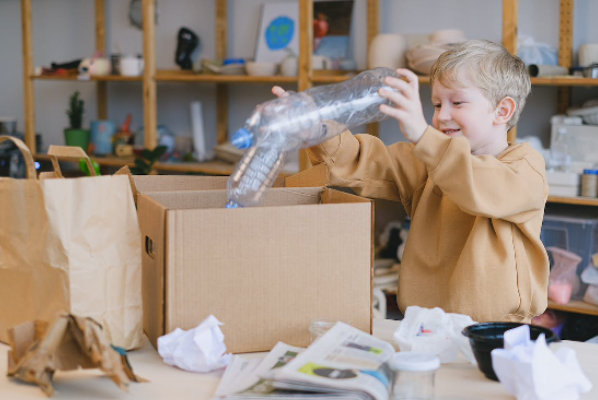Plastic is a versatile material that has provided numerous advantages in living a clean, healthy, and efficient lifestyle. However, the lifecycle of a plastic part continues even after it is discarded or recycled. Recycling plastics at bottle depots may make a significant difference, and consumers must understand the benefits of recycling on both the environmental and economic fronts. Plastic product consumers can make a difference, and corporations and brand owners can lead the charge. In this blog post, we have discussed five key environmental benefits of plastic recycling.
How Plastic Recycling Is Important For A Sustainable Environment
There are several ways that plastic recycling at a return-it-bottle depot benefits the environment. Have a look at the points that are listed below.
- Conserving Energy
Making plastic from scratch consumes significantly more energy than making items from recycled plastic. The energy saved can be used for other vital economic needs. Furthermore, the manufacturing process necessitates using natural resources such as water, petroleum, natural gas, and coal as raw materials. As a result, plastic recycling conserves valuable natural resources. For example, petroleum, essential for producing new plastic products, can be reduced by recycling discarded and old plastic garbage by around 40%.
- Lowering Raw Material Demand
Plastic recycling decreases the need to extract fresh, raw materials from the environment by reusing previously processed materials and protecting natural resources. It can help to reduce heat-trapping gas emissions into the environment. It also keeps more garbage out of landfills.
- Reduced USE OF FOSSIL FUELS
Plastic manufacturing consumes a significant amount of oil. Although recycling at bottle depots consumes fossil fuels, the amount used is far less than that needed to produce new polymers. Millions of barrels of crude oil are required in a year to drive the demand for plastics. Recycling plastics is the most environmentally friendly way to reduce the use of fossil fuels. Because crude oil is a limited natural resource, recycling plastic and recovering as much raw material as possible can significantly reduce crude oil use. Furthermore, recycling plastic at a bottle depot near you saves the energy required to create new materials. According to one study, a ton of recycled plastic saves 7,200 kilowatt-hours of electricity, or about enough energy to power a household for seven months.
- Reduced CO2 Emissions
Reduced oil usage also reduces CO2 and other greenhouse gas emissions from producing new polymers. Furthermore, recycling minimizes pollutants generated by garbage combustion.
- Reduced Reliance On Landfills
More plastics being recycled means fewer end up in landfills. Another advantage is that fewer plastics in landfills result in fewer common waste gasses such as carbon dioxide and methane emissions. Both of these gases are harmful to the environment.
- Encourages A Sustainable Way Of Living
We are aware of the consequences of plastic overconsumption because we recycle it. Simply having this information is crucial because it allows us to understand the influence of our habits on the environment and make the necessary changes in our everyday lives. Look for a “bottle depot near me” and be a part of creating a sustainable environment.
Conclusion
The situation is steadily improving as waste management technology for plastic recycling advances. Even on an industrial scale, recycling plastic at a return-it-bottle depot is now relatively simple. If businesses worldwide incorporate well-planned plastic reuse and recycling methods into their waste management approach, it will be a big step toward conserving our beautiful ecosystem. Businesses can also minimize hazardous waste output, cut waste management costs, and create profits by selling recycled plastic items progressively finding demand in various markets by implementing an adequate plastic recycling strategy.
